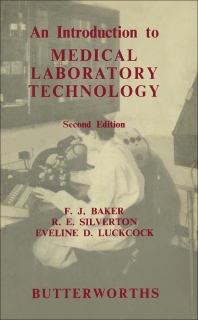Books in Diagnostics and immunology
Books in Diagnostics and immunology
- 1st Edition
- August 1, 2025
- Tuan Anh Nguyen
- English
- Paperback9 7 8 0 4 4 3 3 3 9 8 4 4
- eBook9 7 8 0 4 4 3 3 3 9 8 5 1

IoT-WSN-DT Based Medical Systems and Nanotechnology for Smart Cancer Care
- 1st Edition
- May 4, 2017
- Lambros S Athanasiou + 2 more
- English
- Paperback9 7 8 0 1 2 8 0 4 7 3 4 7
- eBook9 7 8 0 1 2 8 0 5 1 1 3 9

Atherosclerotic Plaque Characterization Methods Based on Coronary Imaging
- 1st Edition
- February 1, 2017
- Ali Ataya + 1 more
- English
- Paperback9 7 8 0 1 2 8 0 9 5 9 0 4
- eBook9 7 8 0 1 2 8 0 9 7 6 7 0

Rare and Interesting Cases in Pulmonary Medicine
- 1st Edition
- August 25, 2016
- Vassilios Fanos
- English
- Paperback9 7 8 0 1 2 8 0 5 3 0 5 8
- eBook9 7 8 0 1 2 8 0 5 4 5 0 5

Metabolomics and Microbiomics
- 1st Edition
- July 29, 2016
- David H. Trapnell
- English
- eBook9 7 8 1 4 8 3 1 9 5 3 8 4

Principles of X-Ray Diagnosis
- 1st Edition
- May 3, 2016
- Mostafa Ghanei + 1 more
- English
- Paperback9 7 8 0 1 2 8 0 3 9 5 2 6
- eBook9 7 8 0 1 2 8 0 3 9 7 9 3

Mustard Lung
- 1st Edition
- April 18, 2016
- Andy D. Nguyen + 2 more
- English
- Hardback9 7 8 0 1 2 8 0 3 5 3 1 3
- eBook9 7 8 0 1 2 8 0 3 5 6 9 6

Management of Hemostasis and Coagulopathies for Surgical and Critically Ill Patients
- 1st Edition
- March 11, 2016
- Petrisor Aurelian Geavlete
- English
- Hardback9 7 8 0 1 2 8 0 2 4 3 9 3
- eBook9 7 8 0 1 2 8 0 3 8 6 2 8

Endoscopic Diagnosis and Treatment in Urinary Bladder Pathology
- 1st Edition
- February 5, 2015
- Kevin M. Pantalone + 3 more
- English
- Hardback9 7 8 0 1 2 8 0 2 5 7 7 2
- eBook9 7 8 0 1 2 8 0 2 6 6 1 8

MRI Atlas of Pituitary Pathology
- 1st Edition
- May 12, 2014
- F. J. Baker + 2 more
- English
- eBook9 7 8 1 4 8 3 1 9 5 4 1 4
